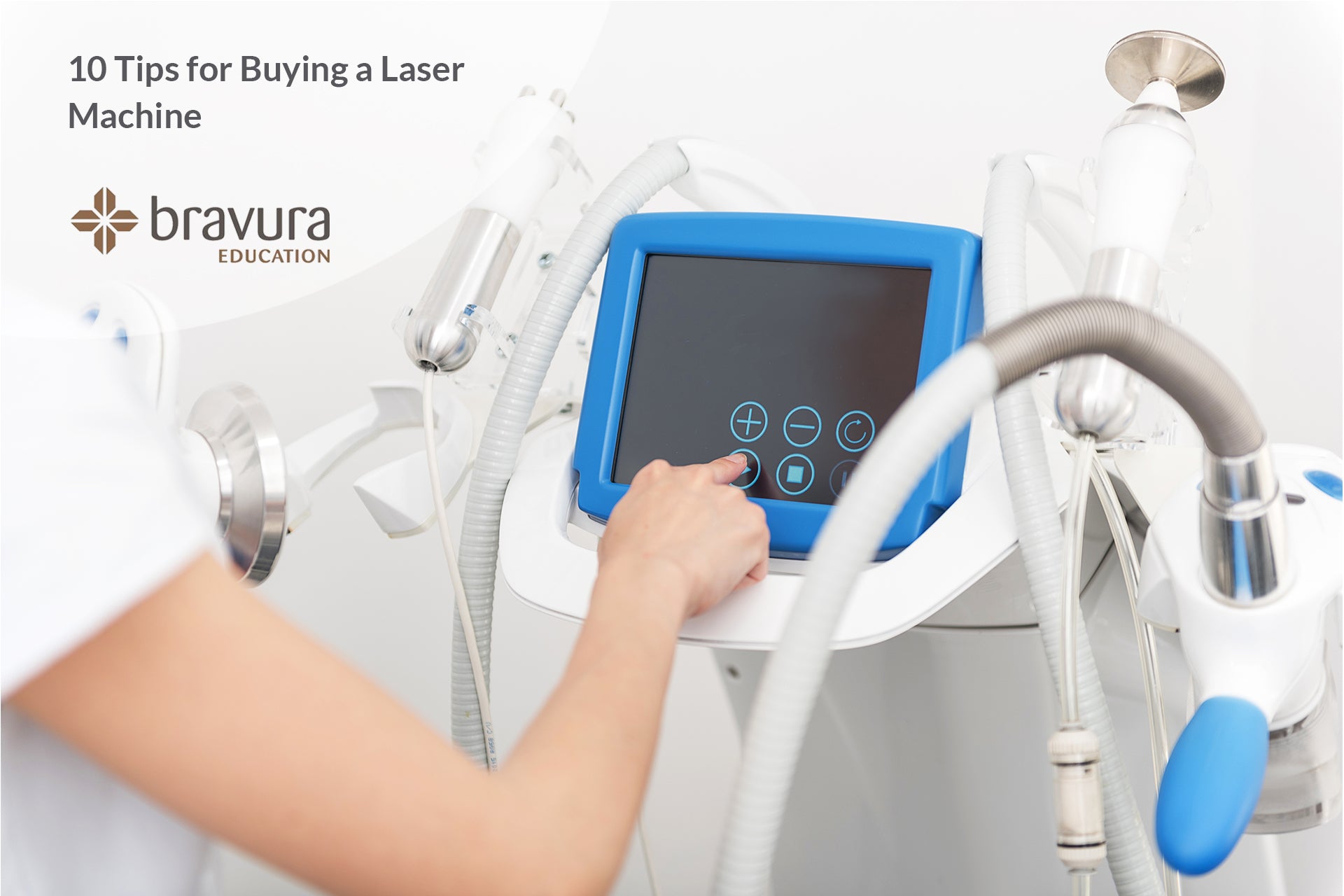
10 Tips for Buying a Laser Machine
Worried about making a costly mistake? Have a limited budget that you want to spend as wisely as possible? Not sure what treatments you'll offer long term? Here we help you make awesome decisions.
-
Get educated on the theory of lasers, IPL, safety and clinical presentations. If you understand wavelengths, principles of photothermolysis, pulse width, fluence, spot size, clinical endpoints, Fitzpatrick Skin Types, expected side effects, and possible adverse outcomes then you will be able to be discerning and make a well-educated decision. Choose theory courses that are accredited, endorsed or recognised by radiation health departments or health professional bodies to ensure they are quality and evidence-based.
-
Check out your state/territory regulations. Are you able to operate a Class 4 laser in your state? Are there licensing requirements? Did you know that IPL is regulated in Tasmania?
-
Be a critical reader. Examine the claims and the clinical papers that are associated with them. Don’t take anything for face value and get independent information too.
-
Decide what services you’d like to deliver. Will it be hair removal, skin rejuvenation, skin resurfacing, tattoo removal or all of these? Choose a machine that will meet your short term requirements and one that will grow as you do. How much can your population afford to pay? Where will you find your customers?
-
Machine settings should be customisable. You want the machine with parameters that are able to be adjusted to suit the different targets and skin types to get the results you really want.
-
Ongoing education and support from the manufacturer is essential. After they show you the basics of how to use the machine will they return to show you advanced applications? Do they have marketing in place that supports your practice? They should provide signage for the door for controlled access and laser safety eye wear as standard. Just because you have been orientated to the use of the machine and its accessories, doesn’t mean you have completed a Laser Safety Officer course, if you don’t have one, get one (see number 1).
-
Consider the costs both initial outlay and ongoing. The initial cost of your equipment isn’t the end of the story. Consider disposable handpieces, handpieces that need refurbishment or repair and other disposables such as gel, spatulas, and linen. Ask for information on the number of treatments needed to start to get a return on your investment.
-
Practice. Provided consent is obtained, you work within your scope of practice/skillset under supervision and safety protocols are adhered to; colleagues, friends, family, volunteers, paid models or paying clients can all help you hone your skills. We have short practical workshops that you can do as stand-alone modules. Choose practical workshops that are accredited, endorsed or recognised by radiation health departments or health professional bodies to ensure they are quality and evidence-based.
-
Determine your budget. Shop around, there are hundreds of choices on offer. Some are TGA approved, some are not. Some are in the hundreds of thousands of dollars and some are not. Consider if you will buy outright, rent to buy, seek finance or how you will pay your machine off.
-
Cover your legal bases. Have adequate professional liabilities insurance. Work within your legal scope. Develop your practice based on exceptional education, evidence-based practice and the discerning choice of equipment.
Post Disclaimer
This blog post has been vigilantly researched and fact checked to ensure that it is accurate, reliable and up to date. You must keep in mind that errors and omissions may occur and that we welcome any feedback or corrections in this regard. We encourage you to do your own research to verify the accuracy and contemporary nature of the information presented.
